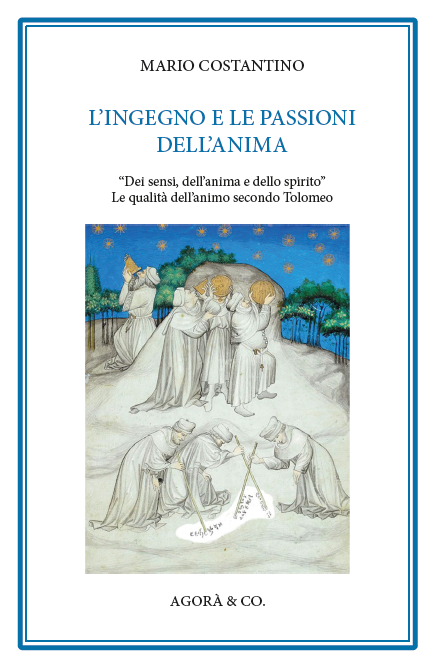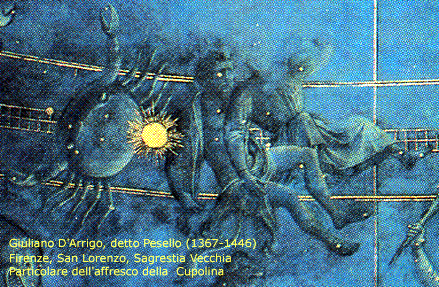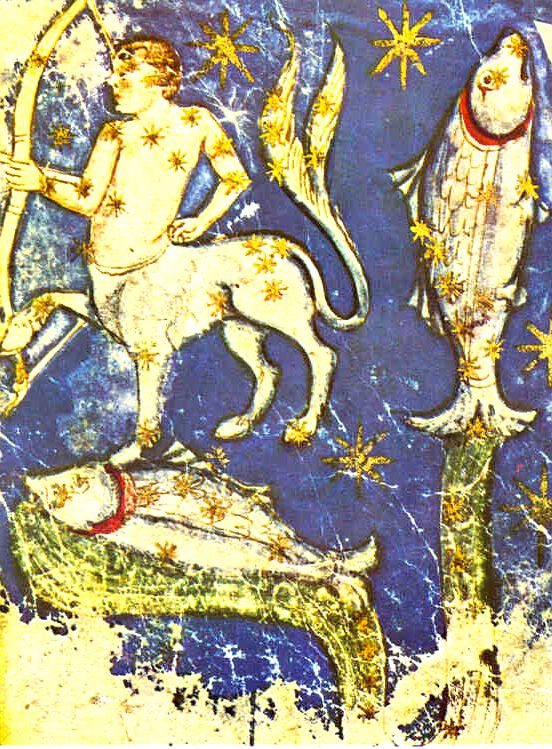We are pleased to inform you of the publication of my first book in paper format, it will be available soon in digital format, as well.
.
THE MIND AND THE PASSIONS OF THE SOUL
“ Of Senses, Soul and Spirit “
The Qualities of the Soul According to Ptolemy
.
Publisher Agorà & amp; C., Lugano, 2021.
.
You can easily purchase it at the following link: www.ibs.it
You can easily purchase it at the following link: www.amazon.it;
Alternatively, you can send us an e-mail at following addresse: cost.m@libero.it;
or you can refer to the publisher, at: infoagoraco@gmail.com.
Soon available also on the Feltrinelli web library;
also at: www.maremagnum.com.
.
 This work aims to explain a complex procedure of astrological investigation based on knowledge and on reflections of the ancients astrology on fundamental issues for man.
This work aims to explain a complex procedure of astrological investigation based on knowledge and on reflections of the ancients astrology on fundamental issues for man.
The introductory chapter concerns the astrological environment and the Philosophical context from which an approach and procedures have been expressed investigation that can be recognized in the works of his main exponents of him.
The remaining chapters are focus on the topic on the qualities of the soul and explain some fundamentals notions of classical astrological doctrine.
Ptolemy dedicates chapter 14th of the book to the question of the soul (3rd book of the Quadripartite).
And insights and comments from Ptolemaic indications are present in the main authors of the tradition following him.
.
In ancient times, the “qualities of the soul” were the intimate, internal characteristics of the individual.
It also include:
the component psychic,
the capacity for logical reasoning and rational thinking,
the world of ideality.
In a modern sense and psychological, the life orientations and the specification are implied quality of our being and our way of acting.
.
.
___________________________________________________________________________________
.
Astrology in ancient times
 In the conception of the ancients everything forming part of a sensitive perception, allowed by our physical senses, could be interpreted by the observation of the “lights in the sky.” The archaic astronomy succeeded to grasp a strictly mathematical dimension of the various phenomena which could not be separated from a close connection with the life of living beings.
In the conception of the ancients everything forming part of a sensitive perception, allowed by our physical senses, could be interpreted by the observation of the “lights in the sky.” The archaic astronomy succeeded to grasp a strictly mathematical dimension of the various phenomena which could not be separated from a close connection with the life of living beings.
In ancient times the astrologer was consulted routinely for various reasons: to provide information on the progress of time – in order to face the attack of parasites, natural disasters and facilitate a good outcome of the crops -; to provide indications on epidemiological progress- and understand the type of course of diseases, the most or the less serious ones of the season -; to provide suggestions on possible political changes and on market trends; to determine the most favorable time to undertake an act of war, starting a trip, a business, set up a company, enter into alliances or agreements and so on.
In the practical dimension of the life of the ancients, the current psychological research was part of the broader observation that the astrologer made on the characteristics of the body – the temperament or crasis – and on the state of mind: psychic, soul and spiritual component.
 Some written traces of predictions drawn from the observation of the phases and the positions of stars and planets date back to 3000 years before the birth of Christ in Mesopotamia. The classical astrological knowledge span a period roughly from 500 BC until 1600. In this span of time, despite the presence of a great variety of techniques and observations, the same principles and the same language can be recognized. From 1700 onwards the scholarly astrology comes out from the teachings of the university and, with a strong contamination of magic, alchemic, esoteric elements, it preserves a knowledge limited to the initiates, within the great variety of sects and organizations that proliferate in second half of the nineteenth century (Spiritualism). It is exactly in this period that there is a definite loss of contact with the complexity of the procedures and techniques that are part of the original structure of the ancient astrology.
Some written traces of predictions drawn from the observation of the phases and the positions of stars and planets date back to 3000 years before the birth of Christ in Mesopotamia. The classical astrological knowledge span a period roughly from 500 BC until 1600. In this span of time, despite the presence of a great variety of techniques and observations, the same principles and the same language can be recognized. From 1700 onwards the scholarly astrology comes out from the teachings of the university and, with a strong contamination of magic, alchemic, esoteric elements, it preserves a knowledge limited to the initiates, within the great variety of sects and organizations that proliferate in second half of the nineteenth century (Spiritualism). It is exactly in this period that there is a definite loss of contact with the complexity of the procedures and techniques that are part of the original structure of the ancient astrology.
The contemporary astrology, from the first part of the twentieth century until today, incorporates the basic characteristics of ancient astrology, after having lost some of those key elements, and it develops richly some elements of depth psychology and psychoanalysis.